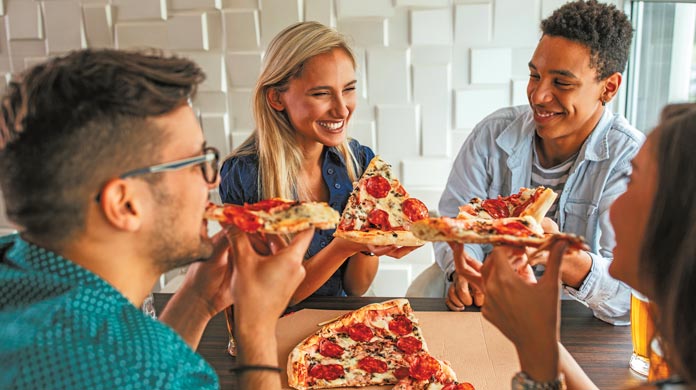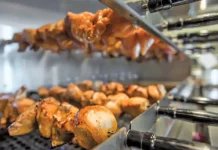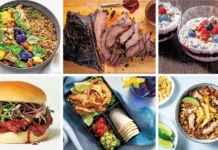
Article contributed by Valerie Bluth and Maria Louisa Bianco, Ellenoff Grossman & Schole LLP
Indoor dining finally returned to New York City on September 30, 2020. The hope is that indoor dining will provide some needed relief to the struggling industry –restaurants lacking suitable outdoor space or for which reopening solely for outdoor dining was cost-prohibitive can finally reopen, and restaurants that have already reopened for outdoor dining can now expand their capacity to bring in more revenue.
However, there are more stringent capacity restrictions placed on indoor dining in New York City than the rest of the state which may render reopening unfeasible for some restaurants. While the rest of New York is limited to 50% capacity, New York City restaurants must cap their customers at 25% capacity. The government claims this is due to ongoing concerns regarding New York City’s smaller spaces, older buildings, higher population density and widespread issues with non-compliance with outdoor dining requirements. That said, the state will reassess the capacity limitations no later than November 1, 2020.
New York has made it clear that the state and the city will be closely monitoring enforcement. The “Three Strikes, You’re Closed” rule in effect for outdoor dining violations will also apply indoors, so for restaurants operating both indoors and outdoors, under two distinct sets of guidance, the potential for noncompliance is now doubled. Accordingly, restaurants should ensure that appropriate steps are taken to avoid even seemingly-minor incidents of noncompliance in order to avoid unexpected shutdowns. To assist restaurants in their compliance efforts, key requirements and considerations are discussed in detail below, for both New York City and beyond.
Key NYC Indoor Dining Requirements:
Restaurants opening for indoor dining in NYC must be sure to comply with the following:
- Limit capacity to 25% of the maximum occupancy for a particular area based on the certificate of occupancy, exclusive of employees –this means that if your restaurant has multiple distinct spaces with separate certificates of occupancy, you should be in compliance as long as you limit capacity to 25% for each distinct space.
- Post signage listing the maximum number of patrons that may be present inside the restaurant both inside and in a location that is visible from the outside.
- Conduct temperature checks of all employees and patrons, and prohibit entry for anyone with a temperature higher than 100.0 degrees – not 100.4 degrees (which the CDC and the outdoor dining guidance consider to be the limit).
- Masks must continue to be worn at all times by staff, and also at all times by patrons, except when seated at their table.
- At least one member of each party must provide contact information to assist the restaurant and the Department of Health with contact tracing efforts in the event of COVID-19 exposure.
- Customers may not walk up to, stand or sit at the bar to order, be served, or pay.
- Tables must be six feet apart in all directions or barriers at least five (5) feet high must be installed.
- Service must end at midnight, though customers may stay for up to 30 minutes after closing to finish their meal.
- Restaurants must ensure air filtration meets the required standards, including upgrading to a minimum of MERV-13 filters, where possible.
- Restaurants must post a phone number where patrons can report violations and a sign encouraging patrons who observe violations to report those violations by texting or calling a designated number.
There are many more health and safety requirements for indoor dining detailed in the Interim Guidance for New York City Indoor Food Services During the COVID-19 Public Health Emergency, which can be found here.
Preparing Your Workforce
The reopening and post-reopening guidelines and requirements are myriad, and the day-to-day implementation of these guidelines will largely fall upon a restaurant’s workforce. To ensure as smooth a transition to indoor dining as possible – and to reduce the risk of violating the requirements – restaurants should invest in a robust staff training program in advance of reopening and periodically once the restaurant is back in business. Training should address, for example, capacity limitations and distancing requirements, the restaurant’s preferred system for obtaining customer contact information, customer health screening, mask requirements, and the required cleaning and sanitizing protocols.
Additionally, throughout the country there have been confrontations between customers and restaurant workers related to customer compliance with reopening restrictions such as mandatory use of masks, social distancing, and decreased capacity. In New York, restaurants may see an increase in confrontations due to the additional safety measures such as requiring a temperature screen and contact information from each party. Accordingly, restaurants would be prudent to consider training employees on how to properly handle noncompliance issues, including threat recognition and nonviolent responses. The CDC has published some strategies for dealing with COVID-19-related customer confrontations, which can be found here.
Monitoring Application and Enforcement of Requirements
The sheer number of restaurants in New York City makes enforcement of the safety and health requirements particularly challenging. Accordingly, the City of New York will be providing 400 additional enforcement personnel beyond the existing corps of people tasked with monitoring compliance. As New York will be doubling down on enforcement of the reopening requirements, including social distancing and mask compliance, the “Three Strikes, You’re Closed,” policy makes it imperative that restaurants are not simply implementing compliance measures at the outset, but also monitoring continued compliance throughout each day.
In particular, restaurants should focus on maintaining logs detailing daily cleaning and the employee health screening process, as well as on completing the required safety plan and having a copy of that plan visibly posted and readily available should a representative from the state or city come knocking – since mid-August, 50-60% of the violations observed by the NYC Department of Health and Mental Hygiene (“NYCDOH”) have been related to failures in these areas. The NYCDOH has also focused on a lack of hand sanitizer in restrooms and failing to have sufficient 6-foot distance markings for areas where patrons may be gathered.
While the reopening of indoor dining marks a significant step forward for the restaurant industry, it is clear that all eyes will be on restaurant operators when it comes to compliance, and if compliance is an afterthought the restaurant runs the risk of being issued a “strike.” This is especially so given that New York has called upon patrons to report violations, and coined the phrase “New Yorkers Protecting New Yorkers.” Finally, beyond the risk of being issued a “strike”, devoting attention to enforcement will help protect the restaurant from potential claims from customers who believe that they contracted COVID-19 while dining.
Restaurant owners and operators, particularly in New York City, may be tempted to finally breathe a slight sigh of relief – and with good reason. But, we cannot stress enough the importance of staying vigilant about compliance with state and local reopening requirements, and staying on top of the still-evolving health and safety obligations to maintain – and hopefully expand – the revitalized dining and drinking landscape.
 Valerie Bluth is a Partner in the Labor & Employment Group at Ellenoff Grossman & Schole LLP. For more than ten years, Ms. Bluth has exclusively represented and advised clients in employment-related matters, with a particular focus in the hospitality industry. Above all, Ms. Bluth works tirelessly to ensure clients are in compliance with an ever-changing landscape of federal, state and local employment laws, especially with respect to pay practices and employment policies, and to devise practical solutions for any employment problems that might arise. Ms. Bluth can be reached at (212) 370-1300 or vbluth@egsllp.com.
Valerie Bluth is a Partner in the Labor & Employment Group at Ellenoff Grossman & Schole LLP. For more than ten years, Ms. Bluth has exclusively represented and advised clients in employment-related matters, with a particular focus in the hospitality industry. Above all, Ms. Bluth works tirelessly to ensure clients are in compliance with an ever-changing landscape of federal, state and local employment laws, especially with respect to pay practices and employment policies, and to devise practical solutions for any employment problems that might arise. Ms. Bluth can be reached at (212) 370-1300 or vbluth@egsllp.com.

Maria Louisa Bianco is an Labor & Employment Associate at Ellenoff Grossman & Schole LLP. She represents and advises clients in a variety of labor and employment matters. Her experience includes defending clients in federal and state court as well as before various governmental agencies against claims of wage and hour violations and employment discrimination. Ms. Bianco also counsels employers of all sizes on workplace issues such as proper pay practice, employee classification, discipline, termination, and leave. Ms. Bianco (MBianco@egsllp.com) can be reached via phone at 212-370-1300.
























Comments are closed.